Small business owner in Georgia talks survival strategy in the age of coronavirus
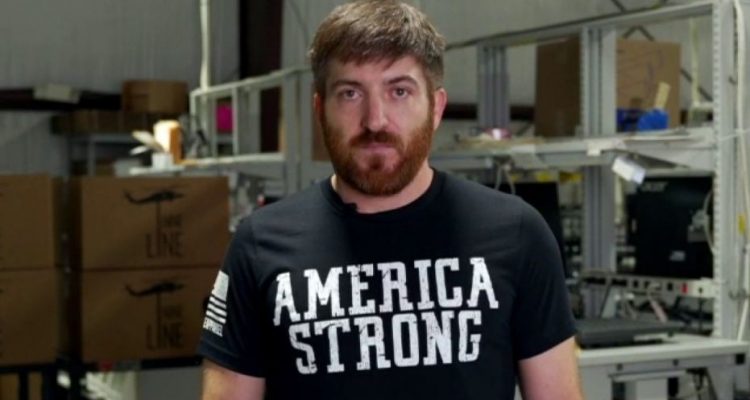

Maintaining focus under pressure is nothing new to Nine Line Apparel’s CEO, Tyler Merritt.
On his first real mission with the US Army, Merritt was in the gunner’s seat of an AH-64 Apache Helicopter, providing close air support to a special operations detachment in Iraq.
“We were tasked with supporting an ODA (Special Operations Detachment) on a capture kill mission. We found a group of insurgents wearing suicide vests running towards our Black Hawks, firing machine guns at the assault force.”
Needless to say, Merritt was able to help eliminate the threat.
“We had a job to do, and our customers, the guys on the ground, needed us.”
Merritt is still in the customer service business, as CEO of Nine Line Apparel, the 31st fastest growing company in the nation. But as the economy grinds to a halt as the nation tries to stop the spread of the coronavirus, Merritt and his team are having to come up with innovative solutions to keep the business running.
The company has always been a bit scrappy, starting out in Merritt’s garage in 2012 printing t-shirts to boost the morale for his unit, the Rangers, and a few other military organizations.
From just t-shirts for military units, Nine Line expanded to apparel for everyone who is “relentlessly patriotic.” Merritt says he named the company Nine Line, a term known throughout the military as a call for help, because he wanted to make sure those who have served this nation knew they would always have a voice and a lifeline in their hour of need.
Soon the operation outgrew the garage and expanded to two connecting “double-wide” trailers in downtown Savannah, Georgia. Somehow, they managed to cram 13 employees in the tight space.
“When it was hot in the summer we used to open the sliding bay door,” Merritt recalls. Of course, there was no air conditioning. But there was no heat either. “In winter it was freezing in that metal box.”
The close quarters help fuel new design ideas, but also tempers. “We used to get in fights over the parking lot because there were too many employees and not enough spaces.”
But the company persevered.
Creative solutions are part of the company’s DNA. “At one point our doorknob kept breaking so we built a makeshift pulley with a water bottle attached to a cord as a weight system.”
Within a couple years, the enterprise had grown from the double-wides to a 10,000- square foot facility with nearly 30 employees, to its current 60,000-square foot HQ with close to 200 employees.
Along the way, Merritt created the Nine Line Foundation to help severely wounded service members and advocate for veterans on other issues. In the last five years, the foundation has spearheaded initiatives to build wheelchair-accessible homes and tiny homes for homeless veterans.
And now the company is prepared to pivot completely.
With a nationwide shortage of face masks for health care professionals and first responders, the company has begun production and testing of protective face masks made of apparel fabric. The fabric is treated with anti-microbial solutions which could meet FDA certification for reducing the likelihood of transmission of the virus through respiratory droplets. The simple, flexible design would accommodate various face shapes and sizes. While not a surgical-grade mask, it could provide front-line defense for health care providers and first responders.
Merritt says the company has “the ability to scale from zero to 100 million masks in a couple of days.”
Scientists and engineers have also volunteered their time to Nine Line’s project. Together, Merritt said, they plan to create their own task force to “fix this problem faster.”
Merritt says he hopes the company can be a Nine Line for the nation. “We are only able to give back and take care of Americans like we do because of the support we’ve gotten along the way.”
Support an American Apparel Company that GIVES BACK to America. We've #GotYourSix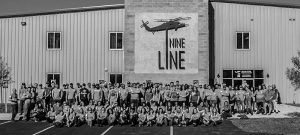
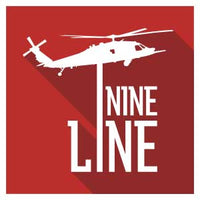
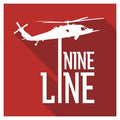

I viewed your wonderful mission of creating masks, on FOX tonight. I am an Interior designer and am familiar with many of the US textile industries being shut down in the US because of the cost effectiveness of making textiles in China. The anti-microbial fabrics need to be made here in the US. Are there any empty mills that could be ramped up to produce antimicrobial fabrics ASAP?
Good idea!
God Bless and keep you
Thank you for all your guys are doing
Thank you all. Got your six, now a customer for life.
From an old ground pounder, you guys are what keeps America great! Stay the course, we will persevere… Semper Fi…
Leave a comment